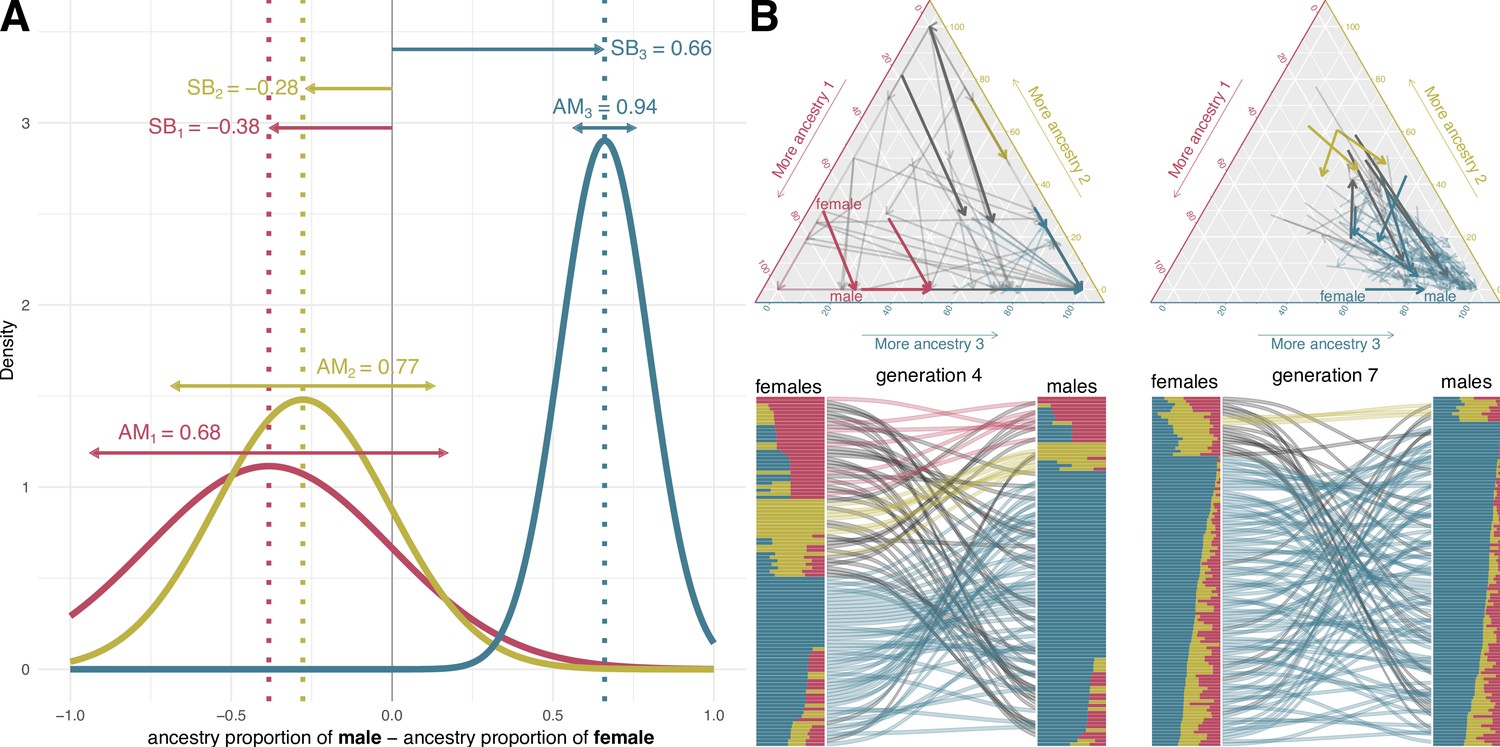The genomic footprint of social stratification in admixing American populations
Cultural and socioeconomic differences stratify human societies and shape their genetic structure beyond the sole effect of geography. Despite mating being limited by sociocultural stratification, most demographic models in population genetics often assume random mating. Taking advantage of the correlation between sociocultural stratification and the proportion of genetic ancestry in admixed populations, we sought to infer the former process in the Americas.
To this aim, we define a mating model where the individual proportions of the genome inherited from Native American, European, and sub-Saharan African ancestral populations constrain the mating probabilities through ancestry-related assortative mating and sex bias parameters. We simulate a wide range of admixture scenarios under this model. Then, we train a deep neural network and retrieve good performance in predicting mating parameters from genomic data.

Our results show how population stratification, shaped by socially constructed racial and gender hierarchies, has constrained the admixture processes in the Americas since the European colonization and the subsequent Atlantic slave trade.
The paper is available for download here.